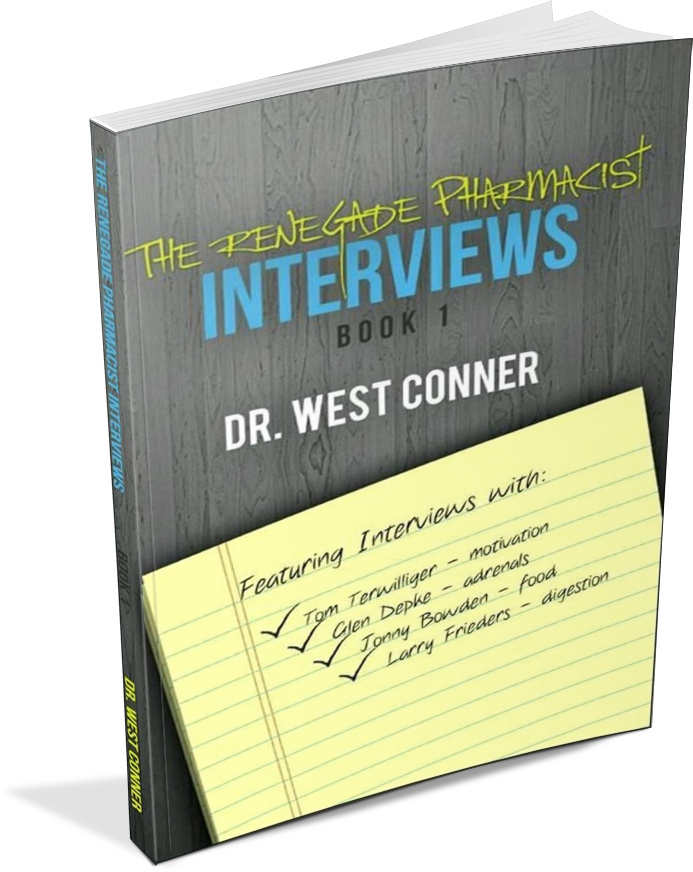 The goal of testosterone replacement therapy is to replace the lowered testosterone at physiologic doses. At this proper dosing, the body’s reaction to testosterone is a restored youthful response in all body tissues. What we are trying to do is replicate the previous testosterone levels by restoring them throughout the body. Too much, and the body responds by increasing estrogen and the protein, sex hormone binding globulin (SHBG). Too little, and you will still suffer from low testosterone symptoms.
The goal of testosterone replacement therapy is to replace the lowered testosterone at physiologic doses. At this proper dosing, the body’s reaction to testosterone is a restored youthful response in all body tissues. What we are trying to do is replicate the previous testosterone levels by restoring them throughout the body. Too much, and the body responds by increasing estrogen and the protein, sex hormone binding globulin (SHBG). Too little, and you will still suffer from low testosterone symptoms.
It should be noted that testosterone therapy will not prolong life expectancy. It will, however, increase the quality of life. Testosterone deficiency is the most common hormonal disorder in males. Low testosterone is related to several preventable diseases and still remains significantly underdiagnosed. Restoring testosterone levels quickly corrects most symptoms of deficiency as levels fall approximately 1-2% per year beginning around age 35.
When levels are restored, men report improvement in energy, well-being, psychosocial drive, initiative, assertiveness, increased libido, more frequent sexual encounters, increased muscular strength and endurance.
In men, testosterone is produced and secreted mainly by the testicles. Starting with cholesterol, testosterone is synthesized within the 500 million Leydig cells inside the testis. These specialized cells make up about 5% of the testis volume. A small amount of testosterone is made from DHEA in specialized areas of the body. This conversion accounts for a very small amount of your total testosterone.
Interestingly, giving a man DHEA at 50mg a day, will not increase his testosterone to acceptable replacement levels, but it will increase his estrogen level. However, a woman taking this dose, will see her testosterone increase.
The pituitary secretes luteinizing hormone (LH) in short bursts to signal the production and release of testosterone. The bursts occur every 60-90 minutes. Releasing LH in this manner maintains the Leydig cell’s sensitivity to LH and maintains the pattern of secretion. Constant stimulation and the Leydig cells will become resistant to the signal.
Men produce between 3mg and 10mg of testosterone per day with 4% being converted to dihydrotesterone (DHT) and about 0.2% being converted to estradiol, an estrogen.
DHT is 3 to 10 times as androgenic (male characteristics) as testosterone. The enzyme 5-alpha-reductase is responsible for this conversion of testosterone to DHT. In the prostate, 95% of testosterone is converted to DHT by 5-alpha-reductase. Specific medications can block this enzyme in the prostate. DHT, along with estrogen, is the contributing factor to an enlarged prostate. Testosterone has a protective benefit to the prostate.
A small percentage, just 0.2%, of testosterone is converted to estradiol by the enzyme aromatase. This may seem insignificant but estradiol is 100 times more potent at the cell receptor site than testosterone. This means that a male needs 100 times more testosterone than estradiol just to have an equal affinity for the receptor. Approximately 80% of estradiol in males is produced via this conversion from testosterone.
The major determining factor in the removal of testosterone from the body are SHBG levels, the individual’s circadian rhythm, amount of blood flow to the liver, genetics, and environmental factors. The clearance of testosterone from the body is reduced with lower SHBG levels and reduced blood flow to the liver.
Beginning around age 35, there is a gradual decrease in testosterone and increases in estrogen and SHBG. The decrease is accelerated and begins earlier with poor health or chronic illness.
Testosterone is transported by binding to SHBG. SHBG is made and secreted by the liver. SHBG binds 70% to 99% of the testosterone in a man’s body. The remaining 1% to 30% is either bound to other proteins or free to move into tissues resulting in an effect on the cell. The higher the SHBG concentration, the lower the amount of free testosterone available to the body. SHBG concentration is affected by testosterone levels, estrogen levels, liver disease, obesity, and genetics. Once bound to these proteins, the testosterone is rendered “inactive” and is taken to the liver for removal from the body.
Testosterone peaks for men in the early morning and slowly declines throughout the day with a low in mid-afternoon only to rise slightly again in the evening.
Many physicians use blood to measure testosterone levels. This is accurate for testing the total testosterone level but inaccurate for testing the free and active form. Additional blood tests are rarely performed to determine SHBG and the “free testosterone” measurement is given as an estimate. This estimate can vary by several fold and is generally considered useless in a clinical setting. Without additional blood testing, the only true and accurate way to measure free and active hormone levels is through saliva.
Certain diseases and medications will increase the SHBG levels. A hyperthyroid (fast thyroid) condition will increase the body’s SHBG by stimulating release from the liver. This will cause low testosterone symptoms while total testosterone levels remain unchanged.
Clinically, testosterone is used to treat anemia, osteoporosis, chronic obstructive pulmonary disease, angioedemia, immune system disorders, lung deficiencies, and muscular diseases. Chronic heart failure is associated with low testosterone levels. These conditions are usually treated with newer, more expensive therapies that show only a slight benefit over the much less expensive testosterone. There are also no side effects to testosterone therapy with correct dosing. At conventional doses for replacement therapy, there is no need to monitor the liver, kidneys, or electrolytes.
When taken orally, testosterone is quickly broken down by the liver into inactive metabolites. Because of this, testosterone is best given by intramuscular injection, transdermal cream, or sublingually.
Testosterone production can be completely shut down in men using synthetic progestins.
Abuse of testosterone and it’s anabolic/androgenic derivatives by athletes has produced a stigma surrounding the therapy. These hormones allow the body to produce larger and stronger muscles in a shorter period of time. They also significantly decrease recovery time between strenuous activity. Taking high levels of testosterone also temporarily shuts down sperm production and is associated with male infertility while on supra-physiologic doses.
Limited studies show that short-term, high dosing of testosterone has little medical danger, is not physically addictive, and most abusers eventually stop. After long-tern use, recovery of normal bodily testosterone production may take up to two years.
Testosterone replacement therapy, when done properly, is an inexpensive treatment to significantly improve the quality of life for males. The therapy has been used successfully for decades but has recently been associated with abuse among athletes and recreational users. Because of this, many doctors are reluctant to educate themselves of the risks, benefits, and protocols of testosterone therapy.
Also, since the hormones cannot be patented, pharmaceutical manufacturers cannot make a profit and therefore will not advertise this from of therapy. The prescription form of testosterone that my patients use costs them about $5.00 a week.
For more information visit Coaching Options


Question: my testosterone levels were at 81 most recent blood work. The norm according labxorp is approximately 300 to 1150…my dht levels were low too…I attribute this low levels to 1mg propecia. Over years Hair loss totally stopped. .hair is amazing full thick..stopped thinning …process..however drove test low????…. I use testosterone packet 50 mg daily. .starting feel better…should continue propecia? Will testosterone cause increase in dht hormone and cause hair follicles shrink again????
Hi
What are the optimum free testosterone levels for male.
Hello Dr. I am 41 and have been on trt for approximately 2 months. Testosterone peaked and my Dr. Told me to stop cold turkey. Is this safe and will my natural production of testosterone be shut down within 2 months. I was injecting 150mg every two weeks.
Hi Dr. West,
I am a 38 male, 5’11”, 196 lbs. I have experienced low energy, low sex drive, low confidence for many years. Otherwise healthy, and I also had vasectomy in 2005.
Testosterone test has shown to be between 309 and 341 at it’s highest.
Recently went to my doctor and have had my first shot so far of testosterone cypionate 200mg. So far my first 4 days have felt amazing, with all previous symptoms reversed. I read that the half life is 8 days, does this mean its completely out of your system in 16 days? My doc want’s to put me on 200mg once per month. Is this a good recommendation from my doc, or should I be on 200mg every two weeks? Would appreciate your feedback.
Bob
testosterone cypionate should be a weekly injection
I am 44, 6′-0, 240 and have been gaining weight and visible water weight(swelling ankles) for the last 4 months (about 20pounds) and I exercise quit a lot. I have been on testosterone cypionate 200mg in 1ml vial for a few years. I have been on various cycles: 14 day 200mg/1ml, 10 day 200mg/1ml and 7 day 200mg/1ml vial but only took .75ml.
My testosterone numbers seemed best on the described 7 day cycle but dont have the estrogen numbers. I am currently on the 10 day cycle and my numbers at the end of cycle are:
testosterone: 255 ng/dl range >18 348-1197
Estrogen: 93 pg/ml range (40-115)
My Estrogen has been going from 50-145 pg/ml and I have seen many sites say anything over 30 is not good. The range for my lab says (40-115 is normal.
What is an estrogen level I should be trying to get to?
Do you think the estrogen is causing the weight gain?
I have Factor V Leiden (clotting issue) so I am wondering what is safe to take to block estrogen.
My doc wants me to go back to the 14 day cycle to reduce the estrogen but my Testosterone numbers at end of cycle are in the low 100’s when I do that…and I feel like crap for about 7 days of the cycle…
Hello,
Background: for about two years I was put on androgel for anemia and low testosterone. Red blood cell count of 15 and t level of 200.
About a week ago I went in for a routine blood work and my red blood cell count jumped to 19. My doctor was concerned and took me off HRT. Since the stop I have been feeling the effects immediately. I am scheduled to take another blood test in a month. I am suspecting he will not put me back on HRT after that. I am really not doing well with the empty and weird feelings since the stop. If you don’t mind, I have a few questions. What are my options? is there any supplements that can help?
Hi Dr,
I’m 43 and about to start 250mg per week of testosterone ethanate. Im concerned about this speeding up hair loss. (my hair is slightly thinning on top). Will taking this amount speed up the process? Will taking finasteride /dutasteride, prevent/limit the conversion of this amount to DHT? Should i be worried?
I have taken 500mg of testosterone enanthate for 3 months- I’ve been off for 2 months- will I pass an athletic urine test?
HI everyone. I am a 38 year old male with a testosterone level of 494. I would really like to get my levels in the up wards of 1000 to 1200. would 200 mg of testosterone injections get the results im looking for would it help me loose excessive body fat and gain more lean muscle. like I stated I am 38 year old male 6′ 2 and weight in at around 240 lbs. I am healthy in all aspect but have no energy, extra weight around mid section, very stressed out at times and my libido has gone down the toilet. Any and all help would be greatly appreciated.
200mg a week of testosterone cypionate should put you right there.
Hi,
my blood work results are:
Testosterone 3.89 ng/mL (2.49-8.36)
LH 5.28 IU/L (1.7-8.6)
FSH 3.33 IU/L (1.5-12.4)
Progesterone 1.16 ng/mL (0.2-1.4)
Prolactine 391 mU/L (86-324)
Cortisole 561.2 nmol/L (171-536)
DHEA-S 11.37 umol/L (2.41-11.6)
Estradiol 31.02 pg/mL (7.63-42.6)
T level is in normal range but low for my age (41). Doctors I’ve visited did not comment on those results but gave mi Cialis which actually treats consequence of low T. Can anything be deduced from my blood work results that could point to possible reasons of low T?
Thanks
Your prolactin is high. Have that checked for a possible problem. Also, high cortisol can block your hormones.